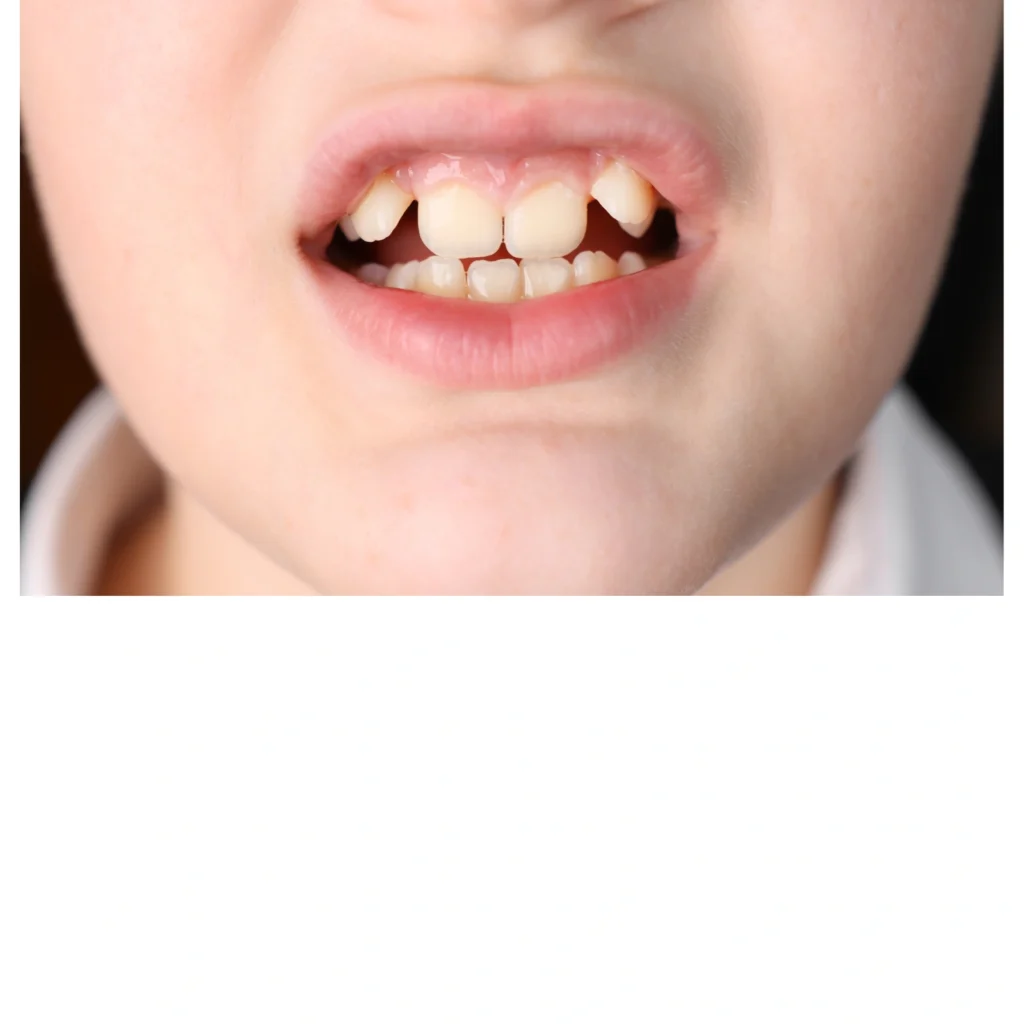Crooked teeth impact people of every age group and are among the most frequent dental issues. Usually beginning in childhood, this condition tends to worsen unless addressed early. Whether genetics or lifestyle are to blame, misalignment can affect more than just looks.Luckily, modern dental care offers reliable methods to improve both appearance and function.
Many different factors lead to the formation of crooked teeth, and often they are not in our control. One of the main causes is hereditary—if misaligned teeth run in your family, the chances of inheriting it are higher.
In addition to this, misalignment may result from:
Sometimes, limited jaw space prevents proper tooth eruption. In other situations, early or late eruption of permanent teeth leads to spacing problems and misalignment.
Though it’s not always preventable, early check-ups can help reduce the risk of serious complications later on.

Having crooked teeth isn’t just about appearance. An unbalanced smile may lower confidence but can also affect dental function and cleanliness.
Here’s how it can impact your health:
Without care, misalignment can grow worse. Still, addressing it on time helps avoid major issues and ensures oral wellness.
Early detection of impacted teeth can help prevent serious dental issues. Common symptoms include:
In some cases, you may not experience noticeable symptoms at all, making regular dental check-ups vital for early diagnosis.
A lot of people with crooked teeth often hesitate to smile or speak openly. Because of this, they sometimes avoid social events or being photographed, which can affect personal confidence and success in public life.
Fortunately, with clear aligners and invisible braces now widely available, getting your teeth aligned is simpler and more discreet than ever before. These new options support people in all stages of life to smile confidently again.
Fixing crooked teeth requires selecting a treatment that fits both the condition and the person’s lifestyle. Your dentist will suggest the most suitable method after assessing your needs. Here are the most common choices:
Traditional Metal Braces
These are great for correcting serious alignment problems. They use metal brackets and wires to gently move teeth over a fixed period.
Clear Aligners (Invisible Braces)
Clear aligners are a great choice for adults and teens seeking a discreet solution. These trays are nearly invisible, easy to remove, and gradually straighten teeth with precision.
Ceramic Braces
Working just like metal braces, ceramic ones use clear or tooth-colored brackets. They’re harder to spot and match the color of your natural teeth.
Lingual Braces
These are fitted behind the teeth, staying out of sight while realigning your bite. They’re a discreet and efficient way to treat dental misalignment.
Each option is unique. Consulting with your orthodontist will help you choose based on effectiveness, comfort, and visibility.
Spotting crooked teeth early helps simplify treatment and improve results.In some cases, the signs are easy to spot. In others, the misalignment becomes obvious gradually.
Watch for these warning signals:
Difficulty with speech or bite irregularitiesChildren benefit from their first orthodontic evaluation by the age of 7. However, adults can begin treatment successfully at any time.
When treating crooked teeth, maintaining oral hygiene becomes even more crucial. Food can get trapped around braces or aligners, causing decay and related problems.
Maintain healthy habits by:
These habits not only support dental health but also ensure your treatment stays on track.
Although inherited factors contribute, some everyday practices can help stop crooked teeth from developing or getting worse—especially in kids.
Try the following prevention steps:
Use mouthguards when playing contact sports
Also, early orthodontic intervention can help correct slight misalignments before they become more serious. For adults, using retainers after treatment helps keep your smile in place.
Straightening crooked teeth does more than improve your look—it brings overall health benefits too. Here’s what you gain:
Investing in orthodontic care brings lifelong rewards, both emotionally and physically.
To wrap up, crooked teeth are more than just a cosmetic issue. They can cause health problems and self-esteem challenges if left untreated. Thankfully, options like clear aligners and braces make it easy and effective to correct alignment at any age. Early detection, expert care, and consistent oral hygiene can lead to a confident, long-lasting smile. Act now—start your journey today toward healthier teeth and a confident smile.
Crooked teeth can result from hereditary factors, thumb sucking, jaw size imbalance, premature loss of baby teeth, or facial injuries. In many cases, delayed or early eruption of adult teeth also plays a role.
Yes. Misaligned teeth can increase the risk of plaque buildup, gum disease, speech problems, and uneven tooth wear. They may also cause discomfort while chewing or biting.
Clear aligners are effective for mild to moderate alignment issues. They’re discreet, easy to remove, and comfortable—ideal for adults and teens..
Crooked teeth may not hurt initially, but they can lead to serious dental problems over time if ignored. Treatment is usually recommended for functional and cosmetic benefits.
Hyderabad : +91 6305 971445
Anantapur: +91 70758 90089
Goa: +91 83266 32500
Mon to Sat 10:00AM to 8:00PM
Sun 10:00AM to 12:00PM

Our goal is to provide friendly, caring dentistry with the highest standards in general, cosmetic, and specialist treatments. We strive to be the best dental hospital for comprehensive oral care.
We use advanced dental technology to deliver safe, precise, and painless treatments for every patient.